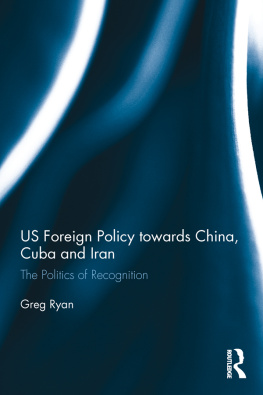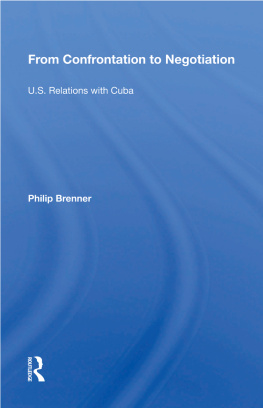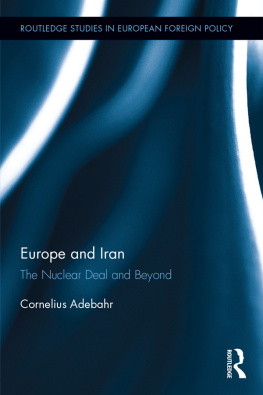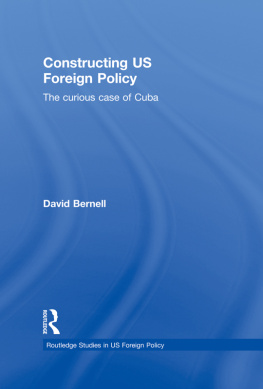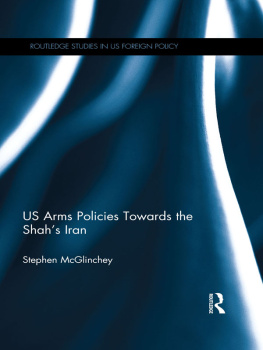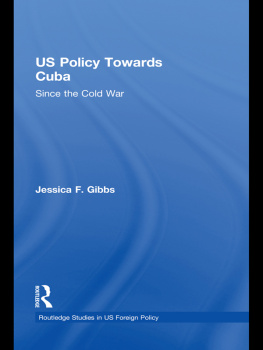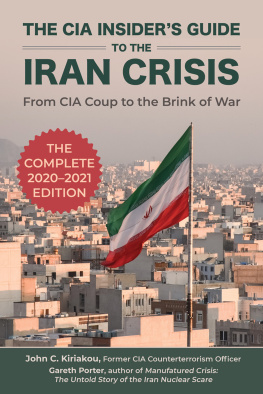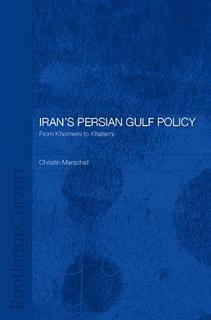US Foreign Policy towards China, Cuba and Iran
Historically, the United States saw itself as embodying the best system of government with a foreign policy goal of bringing this system to the rest of the world. While Washington has, at times, dealt more realistically with other great powers at odds with this view, it has also attempted to alienate lesser states who reject the American system. The enduring policies of severed relations with China, Cuba and Iran are marked instances of this phenomenon. As the Obama administration renewed ties with Cuba and contemplated a more cooperative relationship with Iran, staunch opposition arose in defence of maintaining the long-standing policy of disengagement with these regimes.
Providing a timely explanation for the origins of and continued support for US policies of diplomatic alienation towards China, Cuba and Iran, this book demonstrates the links between IR theory and US foreign policy through the lens of the English School concept of International Society. It identifies historic costs stemming from these policies and cautions that maintaining an overly narrow frame for understanding global politics will cause greater difficulties for US foreign policy in the future.
This book will be useful for American researchers, graduate students and upper-level undergraduates in IR and American Foreign Policy. The inclusion of English School concepts and contrasting of IR theory inside and outside the US should also make it appealing to students in the UK and Australia.
Greg Ryan has significant experience in cross-cultural relations from both academic and practical perspectives. In addition to teaching university courses in comparative politics in both the United States and China, Dr. Ryan served as a US naval intelligence officer from 2003 to 2008. His interaction with international students and foreign intelligence officers gives him an informed perspective on cultural barriers that inhibit US comprehension of world politics and problematic polices that stem from this deficient understanding. His most recent publication is Regional Security Complex Theory, East Asia and US Re-balancing in Review of Global Politics, a policy journal in Taiwan.
This is a welcome new study of US foreign policy and the ideational and pragmatic drivers of Americas external role conception, and then tests these in relation to three important but different case studies. This study offers a sober and honest assessment of Americas actual and perceived role in the world; a first rate diplomatic history of a country arguably still searching for the place of idealism in its international relations. Ryans insightful analysis and elegant prose is captivating and his discussion so rich as to make this a must read for those of us trying to make sense of the short and long cycles of Americas engagement with the rest of the world.
Anoush Ehteshami, Professor of International Relations, Durham University, UK
US Foreign Policy towards China, Cuba and Iran
The Politics of Recognition
Greg Ryan

First published 2018
by Routledge
2 Park Square, Milton Park, Abingdon, Oxon OX14 4RN
and by Routledge
711 Third Avenue, New York, NY 10017
Routledge is an imprint of the Taylor & Francis Group, an informa business
2018 Greg Ryan
The right of Greg Ryan to be identified as author of this work has been asserted by him in accordance with sections 77 and 78 of the Copyright, Designs and Patents Act 1988.
All rights reserved. No part of this book may be reprinted or reproduced or utilised in any form or by any electronic, mechanical, or other means, now known or hereafter invented, including photocopying and recording, or in any information storage or retrieval system, without permission in writing from the publishers.
Trademark notice: Product or corporate names may be trademarks or registered trademarks, and are used only for identification and explanation without intent to infringe.
British Library Cataloguing-in-Publication Data
A catalogue record for this book is available from the British Library
Library of Congress Cataloging-in-Publication Data
A catalog record for this book has been requested
ISBN: 9781138212008 (hbk)
ISBN: 9781315451572 (ebk)
Typeset in Times New Roman
by Apex CoVantage, LLC
Contents
In their thinking about foreign policy and the US role in the world, Americans have not typically given much attention to diplomatic recognition and relations. Circumstances, both historic and geographic, have influenced Americans to either ignore the rest of the world or attempt to force it into the American mold. This phenomenon characterizes the view not just of most American citizens, but of American political decision makers and academic analysts of international relations as well. The objective of this study is to provide an explanation of why enduring policies of severed diplomatic relations and refusal to grant diplomatic recognition deserve greater attention because they have been, and continue to be, costly for the United States and the broader international community.
Historic US success at both domestic governance and competition with international competitors has caused Americans to disregard the realities and resentments of other nations and the resulting negative outcomes of American foreign policy rooted in an inattention to the rest of the world. The cases of broken diplomatic relations examined in this study demonstrate that while the impact of severed relations on long-term American interests is often complex, indirect and evolving (and thus difficult to comprehend), this impact is discernibly negative. The word that best describes the American attitude in interacting with other states is righteousness. When lesser nations that posed no immediate security threat to the United States repudiated their American-backed leaders and American-influenced policies, these nations essentially disavowed Americas faith in its self-designated role of reforming the world. The US responded in kind by alienating them from international society and periodically attempting to restore to them regimes more amenable to American prerogatives by fostering revolutions and insurgencies. The other US alternative, simply maintaining relations with disagreeable states, was too great an affront to American identity.
This perpetual American confidence in US rectitude in international politics has abetted the framing of US disagreements with other states as all or nothing affairs in which the US should either resort to coercion or break relations with offending states, instead of reflecting on the possibility that some American actions may be short-sighted and inconsiderate of others interests and experiences. So far, this penchant for monolithically comprehending the forces of civilization and barbarism in the world has not proved sufficiently expensive to force a change of attitude. However, refusal to diplomatically engage lesser states that the US views as wayward has periodically proved painful enough, and there is no certainty that the US will have the margin of supremacy in the future that it has enjoyed in the past. This study will attempt to establish that the historic cases of US broken relations with China, Cuba and (continuing to the present) Iran represent crucial policy decisions that proved unproductive at best and indicate that the American future will be less secure if similar policies are enacted going forward.

